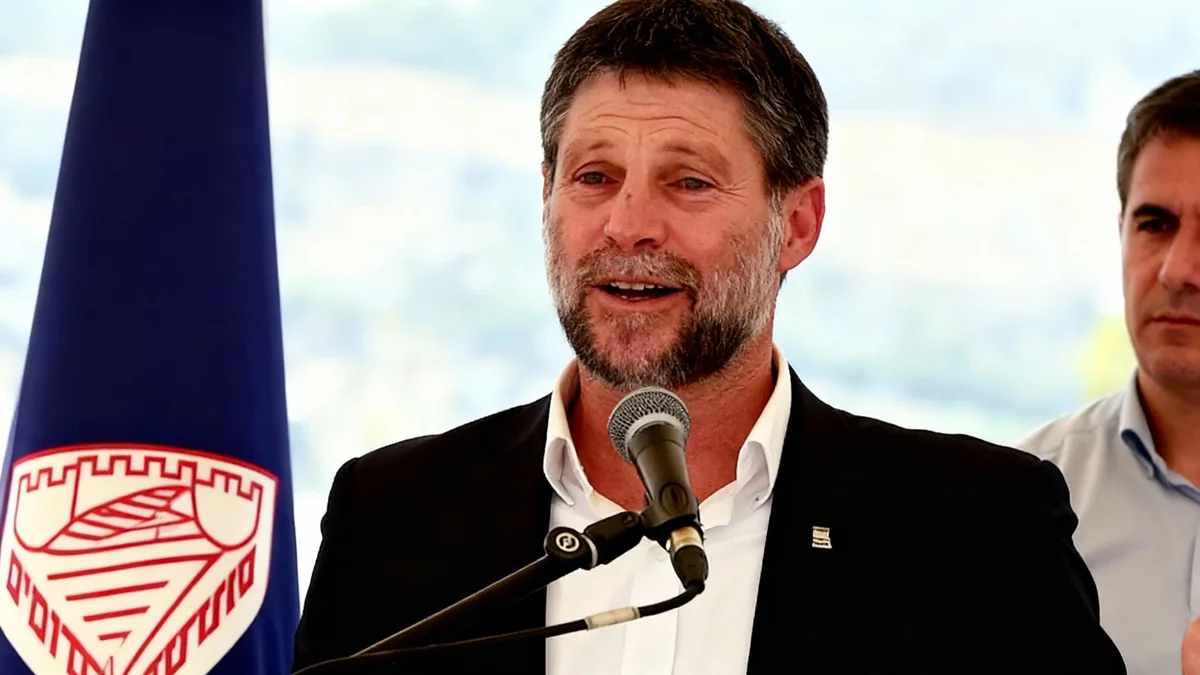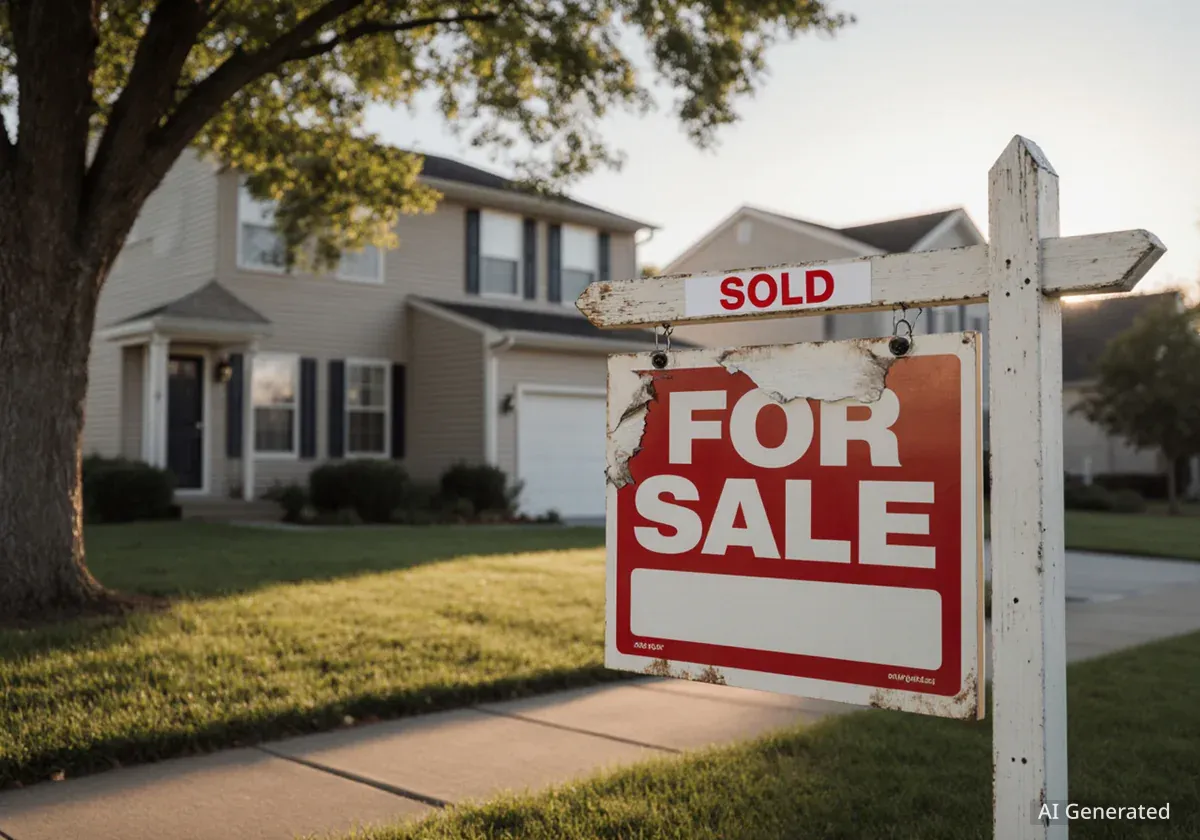Israeli Finance Minister Bezalel Smotrich described the Gaza Strip as a "real estate bonanza" during a conference in Tel Aviv, stating that plans for its post-war division have been shared with former U.S. President Donald Trump's team. The comments add a new dimension to ongoing discussions about the future of the territory following the current conflict.
Speaking at a real estate event on Wednesday, Smotrich addressed the financial aspects of the war and the subsequent rebuilding efforts. He suggested that Israel is actively considering how the land in Gaza will be allocated, framing the destruction as a form of "urban renewal" that paves the way for new development.
Key Takeaways
- Israeli Finance Minister Bezalel Smotrich referred to the Gaza Strip as a "real estate bonanza" at a Tel Aviv conference.
- Smotrich claimed plans for dividing Gaza's land are now "on President Trump's desk."
- These remarks align with a previously floated concept of redeveloping Gaza into a luxury destination, dubbed the "Gaza Riviera."
- A detailed redevelopment proposal, involving population displacement and land appropriation, was reportedly circulated in Washington earlier in September.
- The proposal was linked to Israeli-American venture capitalist Michael Eisenberg and tech entrepreneur Liran Tancman.
Finance Minister Outlines Vision for Gaza
During his address at a real estate conference, Finance Minister Bezalel Smotrich made striking comments about the economic future of the Gaza Strip. He told attendees that significant financial resources have been invested in the ongoing military operations.
"We have poured a lot of money into this war," Smotrich stated. He then connected this expenditure to future development, saying, "We have to see how we are dividing up the land in percentages."
Smotrich characterized the extensive damage in Gaza as "the first phase of urban renewal." He confirmed that a plan for rebuilding the area is being developed and has been communicated to associates of Donald Trump, referring to it as being "on President Trump’s desk."
Background on the 'Gaza Riviera' Concept
The idea of redeveloping Gaza is not new. In February, Donald Trump mentioned a vision to transform the coastal enclave into the “Riviera of the Middle East.” This concept involved luxury resorts and international residents, a plan that would necessitate the relocation of the current Palestinian population. While the idea drew international criticism and seemed to be set aside, Smotrich's recent comments suggest it remains under consideration in some circles.
Connecting to a Broader Redevelopment Proposal
The finance minister's statements give renewed attention to a detailed post-war plan for Gaza that was reportedly circulated in Washington at the beginning of September. This proposal envisioned turning the territory into a high-tech, revenue-generating hub similar to Dubai.
The plan, first reported by The Financial Times, included specific and controversial elements:
- Population Displacement: The proposal suggested offering Palestinians payments of $5,000 per person to encourage them to leave their land.
- Luxury Development: It outlined the construction of world-class resorts and even artificial islands off the coast.
- Mass Surveillance: The new hub would be managed using advanced surveillance technologies.
These details align closely with the broader "Gaza Riviera" concept previously floated by Trump, moving it from a vague idea to a more structured, though contentious, blueprint.
Key Figures in the Proposal
The redevelopment plan was reportedly spearheaded by Michael Eisenberg, an Israeli-American venture capitalist, and Liran Tancman, an Israeli tech entrepreneur with a background in military intelligence. They were part of an informal group of Israeli business leaders and officials who began formulating these ideas in late 2023.
Economic and Geopolitical Implications
Smotrich's framing of Gaza as a real estate opportunity highlights a perspective that views the territory through an economic and developmental lens, separate from the complex political and humanitarian situation. The idea of dividing land by percentages suggests a transactional approach to a region with a deeply rooted history and population.
The involvement of Donald Trump's team, as alleged by Smotrich, introduces a significant geopolitical element. It indicates that certain Israeli officials may be planning for a potential shift in U.S. policy depending on the outcome of future elections. Trump’s previous comments about the U.S. "taking over" Gaza and redeveloping it for "world people" now appear more aligned with the plans being discussed by figures like Smotrich.
"I think you'll make that into an international, unbelievable place."
– Donald Trump, speaking in February about his vision for Gaza.
Viability and International Reaction
While proponents envision a lucrative, modern hub, critics have raised serious concerns about the plan's feasibility and morality. The proposal's reliance on population displacement has been widely condemned as a form of ethnic cleansing.
Furthermore, economic analysts have questioned the viability of such a project. A luxury destination built on appropriated land would likely struggle to attract the necessary global investment and tourism, especially from those unwilling to overlook the humanitarian context. The success of a "Gaza Riviera" would depend on finding a specific class of global elite willing to invest in and visit a location with such a controversial foundation.
As the conflict continues, discussions about Gaza's future remain central. Smotrich’s comments have brought a specific, business-oriented vision into the public discourse, revealing a stark contrast to humanitarian-focused post-war plans proposed by other international bodies.





